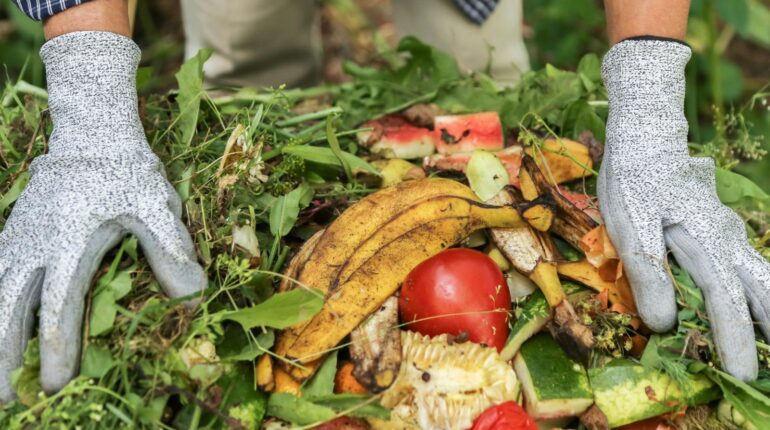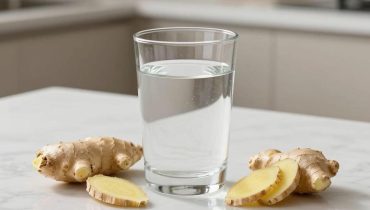📌 The surprising kitchen waste that transforms your garden (and keeps pests away for months)

Posted 1 August 2025 by: Admin
Image d’illustration © TopTenPlay EN
The Growing Popularity Of Lemon Peels In Composting
Over the last few years, composting has transformed from a niche gardening practice into a mainstream environmental movement. More people than ever before are starting their own organic gardens and becoming increasingly environmentally conscious, driving this unprecedented surge in home composting adoption.
Getting started with composting proves surprisingly straightforward—simply combine yard waste, grass, dirt, and water with kitchen scraps. Among these everyday ingredients, lemon peels have emerged as an unexpected star performer that savvy gardeners are now prioritizing in their organic waste management systems.
The citrus fruit reveals itself as surprisingly versatile, extending far beyond traditional cooking and cleaning applications. While most households routinely discard lemon peels after juicing or zesting, experienced composters recognize their untapped potential for backyard and garden enhancement.
This shift reflects a broader evolution in sustainable living practices, where previously overlooked kitchen scraps are being reexamined for their environmental value. Lemon peels represent a perfect example of this trend—readily available in most kitchens yet packed with beneficial properties that can significantly improve compost quality.
The integration process couldn’t be simpler: instead of tossing those bright yellow peels into regular waste, they seamlessly join the existing compost rotation alongside other organic materials. This effortless incorporation makes lemon peels an ideal entry point for composters looking to maximize their waste reduction impact while enhancing their soil preparation efforts.
Image d’illustration © TopTenPlay EN
Nutritional Powerhouse: What Lemon Peels Bring To Your Soil
Beyond their simple integration into compost systems, lemon peels deliver a remarkable scientific advantage that transforms ordinary organic waste into premium soil enhancement. These vibrant citrus remnants function as natural soil acidifiers, creating optimal growing conditions for acid-loving plants that struggle in neutral or alkaline environments.
Raspberries, hydrangeas, and azaleas particularly thrive when lemon peel-enriched compost lowers soil pH levels. This acidification process occurs naturally as the peels decompose, releasing citric compounds that gradually adjust soil chemistry without requiring expensive commercial amendments.
The nutritional profile reveals why experienced gardeners prize these kitchen scraps. Lemon peels contain concentrated levels of potassium, calcium, magnesium, and nitrogen—essential elements that accelerate the breakdown of surrounding organic matter while enriching the final compost product.
Potassium strengthens plant cell walls and improves drought resistance, while calcium supports root development and prevents common deficiencies like blossom end rot. Magnesium activates crucial enzymes for photosynthesis, and nitrogen fuels the microbial activity necessary for efficient decomposition.
This nutrient density creates a cascading effect throughout the entire compost pile. As lemon peels break down, they release these minerals gradually, feeding beneficial bacteria and fungi that accelerate the decomposition of other kitchen waste. The result is a more nutritionally complete compost that forms faster than traditional organic matter alone.
The combination of pH adjustment and mineral supplementation positions lemon peels as dual-purpose composting champions, simultaneously improving soil chemistry and accelerating the entire decomposition process.
Image d’illustration © TopTenPlay EN
Natural Pest Control: The Hidden Defense System
While lemon peels transform soil chemistry and accelerate decomposition, they simultaneously deploy an invisible defense mechanism that protects your entire composting operation from unwanted visitors. This dual functionality elevates these citrus scraps from simple organic waste to strategic garden management tools.
The natural oils concentrated in lemon peels release a powerful deterrent scent that effectively repels a broad spectrum of garden pests. Skunks, rats, cats, and mice instinctively avoid areas where citrus aromas permeate, creating an invisible barrier around your compost pile without requiring chemical interventions or expensive pest control solutions.
This natural repellent system extends beyond larger mammals to target troublesome insects that typically plague outdoor compost areas. Mosquitoes, cockroaches, and ticks retreat from citrus-scented environments, dramatically reducing the likelihood of infestations that can compromise both compost quality and gardener comfort.
The pest control mechanism operates continuously as the peels decompose, releasing aromatic compounds that maintain protective coverage throughout the entire composting cycle. Unlike synthetic repellents that require regular reapplication and pose environmental concerns, lemon peels provide sustained natural protection while contributing to the decomposition process.
This biological defense system prevents larger animals from digging through compost piles in search of food scraps, maintaining the structural integrity of carefully layered organic matter. The combination of nutritional enhancement and pest deterrence creates an optimal composting environment where decomposition proceeds undisturbed by external interference.
However, maximizing these protective benefits requires understanding proper implementation techniques and timing considerations.
Image d’illustration © TopTenPlay EN
Timing And Technique: Maximizing Lemon Peel Decomposition
Understanding proper implementation techniques transforms lemon peels from potential composting obstacles into efficiently decomposing organic assets. The key lies in strategic addition patterns and preparation methods that work with natural decomposition cycles rather than overwhelming them.
Adding excessive quantities of lemon peels simultaneously creates dangerous imbalances within compost chemistry, potentially disrupting the delicate ecosystem that drives effective organic breakdown. Instead, gradual integration allows beneficial microorganisms to adapt and process citrus materials without compromising overall pile health.
Whole lemon peels require substantial decomposition timeframes, often exceeding six months even with consistent addition of brown materials like dried leaves, sawdust, and paper, coupled with regular pile turning. This extended timeline reflects the robust structure of citrus peels and their natural resistance to rapid bacterial breakdown.
However, strategic preparation dramatically accelerates this process. Cutting peels into smaller pieces exposes greater surface area to decomposing agents, while pre-drying removes excess moisture that can slow bacterial activity. These preparation steps can reduce decomposition time by several months.
Seasonal considerations further optimize timing strategies. Summer temperatures naturally facilitate faster breakdown of chopped peels added directly to compost piles. During cooler months, oven-drying peels on low heat before addition becomes essential for maintaining decomposition momentum and preventing pile stagnation.
This methodical approach to timing and preparation ensures lemon peels contribute their full nutritional and protective benefits while integrating seamlessly into established composting rhythms.




















